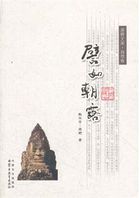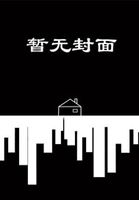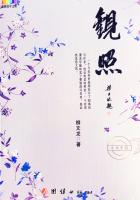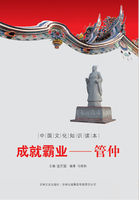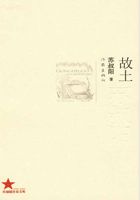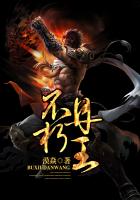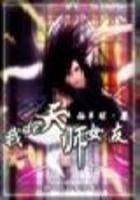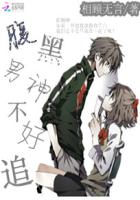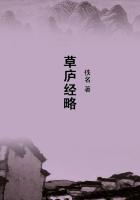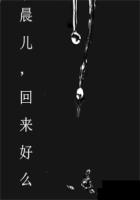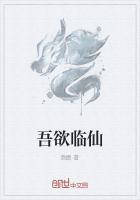AnimalRepresentationin Vonnegut’s Fiction
A。 Vonnegut's Representation of Animals
Some features of Vonnegut's menagerie become remarkable in light of the animal studies theories。 First of all, most of his animals are weak and awkward。Many are pets or domestic animals, such as dogs, cats, horses, cows, and pigs。They are constantly in danger of victimization, to be turned into dishes on the human dinner table, or battered in a techno-powered society, as suggested by the cat killed by the assembly line in Player Piano and the mutilated dog in the prologue of Jailbird。There are also wild animals, but few of them are ferocious predators。Those that most frequently appear are giraffes, turtles, rhinoceros, aardvarks, and famingos。The biggest animal Vonnegut favors is the chimpanzee, but they are often used as metaphors for their human cousin。It is evident that few of these animals are aggressive or dangerous。Wild animals as they are, they seldom evoke associations of violence or aggression。
Instead, because of their common awkwardness and preposterousness in appearance, they are targets of human ridicule and contempt, as in the case of the giraffes in Slaughterhouse-Five and the rhinoceros in Hocus Pocus。In the wild, these animals live an innocent and free life, but in the human imagination, they become stereotypes for awkwardness and ludicrousness。The most vicious animal of Vonnegut is the snake in Slaughterhouse-Five, but Vonnegut quickly dissolves its negative association by having Edgar Derby, the only heroic character in the novel, to add,“but snakes couldn't help being snakes[……]”(SF 164),meaning what they do is out of natural instincts, notmalignant scheming, which bad humans do。
Rhetorically, there are two kinds of animals in the Vonnegut world:the metaphorical and the real。 In the metaphorical treatment of the animals, Vonnegut adopts an anti-anthropomorphic rhetoric, which Steve Baker terms as“theriomorphism”。Different from the traditional animal fables or animal stories that fgure animals as humans, capable of speaking and reasoning, Vonnegut portrays humans in terms of animals。For example, in Slaughterhouse-Five, Billy envisions himself as a“preposterous”giraffe, and humans are referred to as“unfortunate mammals”and are compared to“bugs in amber”。In The Sirens of Titan, Rumfoord compares life of Constant and other human beings on Mars to that of farm animals。Considering that the animals Vonnegut uses are mostly those that are weak and passive, his theriomorphic treatment of humans shows the human condition of helplessness and despair。An ultimate effect of such portrayal is the deifcation of humanity。
When the animals are represented in Vonnegut's world as real, living things, their abuse and victimization are emphasized, which reflects Vonnegut's humane sympathy for the animals。 On the one hand, he exposes human's inhumanity through such deions;on the other hand, he is suggesting that nonhuman animals are also lives that deserve moral consideration。The best illustration of this humanitarian attitude is his putting the tag“so it goes”in Slaughterhouse-Five after every killing and dying of animals, germs, and small insects as well as lives of human beings。In this respect, Vonnegut is in alliance with the biocentric philosophers。
Another tendency in Vonnegut's portrayal of animals is the parallelism between humans and animals, particularly in face of violence and oppression。 The train carrying prisoners of war in Slaughterhouse-Five and the migrant workers in Jailbird is compared to the cattle train;the black convicts issuing from the prison truck in Hocus Pocus remind the narrator and his wife of dumfounded stock transported to the slaughterhouse;also inHocus Pocus, the boiling of lobsters alive is associated with the boiling of convicts alive in HenryⅧ’s reign of England。Such comparisons illuminate the similar fate of humans and nonhuman animals in face of domination and tyranny, breaking down the human/animal boundary。We see Vonnegut’s insight in seeing the collaboration between the discrimination within the human sphere and the discrimination of species。To be more accurate, he has incisively drawn an analogy between racism, classism, sexism, and speciesism, a shared understanding among most animal studies scholars。
Vonnegut's favorite expression is to call humans in the name of animals:human beings are“awful animals”,“impossibly conceited animals”,“animals with a big brain”,and“unlucky mammals”。 Another favorite nomenclature for humans is“the Earthlings”,a name that calls to mind the humble position of the humans as ordinary planetary citizens。The tendency revealed in these epithets is to disperse the century-long hallo around man as the pinnacle of the world, defate the hubris and arrogance, and restore the sense of identity as a common species in the ecological world。
To conclude, the animal images in Vonnegut's fiction serve two roles:to critique and redefine humanity and to urge for the extension of humanitarian concerns to the world of nonhuman animals。 Both of the two roles are integral components of Vonnegut's humanism。
B。 Vonnegut's Humanism Puzzle
As is discussed earlier, scholars and critics have reached a common understanding that Vonnegut is an adamant humanist preoccupied with the question of humanity。 Humanism has become a crucial focal point for Vonnegut study。As Jerome Klinkowitz notes,“[n]o matter how evil, stupid, or inept we become as a culture or as a people, Vonnegut is there in his fction reminding us not to give up on the human race。[……]At heart, therefore, to see Vonnegut as a humanist as well as a humorist is to see himin true relation to his times and his culture”(1977:xv)。
However, when discussing Vonnegut's humanism, scholars and critics fnd it hard to pin it down。 They somehow feel that the traditional discourse of humanism is inadequate for the discussion and try to search for a new language。Todd David(2006)calls it“a New Kind of Humanism”,but he fails to specify its core features。The label he comes up with—“postmodern humanism”—is rather vague and expedient, an arbitrary grafting of postmodernism and humanism。In the Chinese academia, Professor Chen Shidan(2010)also calls Vonnegut“the postmodern humanist”,but the modifier“postmodern”denotes style more than content, signifying the era and the artistic school Vonnegut belongs to rather than the kind of humanist he is。For Robert T。Tally, Jr。,too, the matter of classification of Vonnegut's humanism is a hard nut to crack。He first refers to it as a“misanthropic humanism”(2008),denoting Vonnegut's general depiction of humans as fundamentally fawed, petty, avaricious, and prone to acts of almost incredible cruelty。Yet later, Tally fnds it important to acknowledge Vonnegut's persistent sympathy for humans and his admiration for their perseverance against all the odds。For him, Galapagos is, in particular, a novel in which Vonnegut overcomes his misanthropic humanism,“not by abandoning the mis-in misanthropy but by abandoning the anthropos”(2009:114)。Therefore, the term“misanthropic humanism”cannot do justice to Vonnegut's complex feelings for humanity either。
The reason that critics feel perplexed about Vonnegut's humanism, I think, lies in his apparent contradiction in his treatment of humanity。 On the one hand, he avowedly devotes his life to“poisoning the minds of the young people with humanity”,encouraging them to work toward a better world(CKV 5)。He insists in teaching them“the most ridiculous superstition of all”—the belief that“humanity is at the center of the universe, the fulfller or the frustrator of the grandest dreams of God Almighty”(WFG 163)。On the other hand, however, he attacks vehemently mankind's cruelty, stupidity, and hubris, as well as all kinds of demonstrations of“man's inhumanity to man”,referring to humans as“awful animals”,capable of any vicious acts imaginable。He declares that“human beings are too good for life。They've been put in the wrong place with the wrong things to do”(CKV 226)。In fction as well as public statements, Vonnegut expresses the idea that humans are too vicious to deserve living on。The Earth is trying to get rid of us and we should voluntarily stop reproducing。As a matter of fact, this gloomy outlook of Vonnegut is so fully and fercely expressed that many critics believe he is a thorough pessimist, or even worse, a nihilist, a misanthrope。
This love-hate complex over humanity, the“touching ambivalence”in what he says about humankind(Reed 1972:219),is exactly the same as the conficting minds of many antihumanists that Tony Davies discusses。“Not only do most antihumanists, as Kate Soper has put it,‘secrete a humanist rhetoric'that betrays their hidden affnity with what they deny,”he states,“they generally serve openly humanist ends of intellectual clarity and emancipation, articulated around a recognizable ethic of human capacity and need”(Davies 34)。 An antihumanist as Kurt Vonnegut might be to a certain degree, he is nevertheless a firm worshipper of the“religion of humanity”,that is,“mankind's wish to improve itself”(WFG 238)。“Human beings are stubborn and brave animals everywhere。They can endure amazing amounts of pain, if they have to,”he lovingly assures us(WFG 171)。The purpose of his preaching humanism and attacking humanity simultaneously is to make people believe in the worth and dignity of humanity while seeing its limitations and vulnerability, so that“there might be hope for us。Human beings might stop treating each other like garbage, might begin to treasure and protect each other instead。Then it might be all right to have babies again”(WFG 163-4)。
Furthermore, Vonnegut has a strong conviction in the writer's social responsibility。 He asserts in the Playboy interview,“I agree with Stalin andHitler and Mussolini that the writer should serve his society。I differ with dictators as to how writers should serve。Mainly, I think they should be—and biologically have to be—agents of change。For the better, we hope”(WFG 237)。He believes that writers are the alarm systems of a society, the“specialized cells”,and“the canary birds in the coal mine”who chirp and keel over when their sensory cells warn them of great danger before everybody else takes notice of it(WFG 238)。“I would not be interested in writing if I didn't feel that what I wrote was an act of good citizenship or an attempt, at any rate, to be a good citizen,”he told another interviewer(CKV 72)。
In light of this strong sense of social commitment, Vonnegut's satire, ridicule, and embittered portrayal of the“earthlings”become more potent with meaning。 Like his much admired progenitors Jonathan Swift and Mark Twain, Vonnegut is an earnest humanist behind the harlequin mask,“a satirist with a heart, a moralist with a whoopee cushion”(cover commentary of Fates Worse Than Death)。All his antics and ridicule are efforts to tickle and shock his readers into the sharp realization of their follies and weaknesses, so that a change for the better could be possible。In the language of attack and ridicule, Vonnegut expresses his compassion for his fellow humans。
C。 Writing toward Ecological Humanism
Ecological humanism offers us a useful theoretical perspective to describe and interpret the odd combination of Vonnegut's attack and advocacy of humanism。 It can also serve as a juncture to link the author's fondness of animal imagery and his peculiar stance toward humanity。First of all, ecological humanism is grounded in a critical examination of classical humanism。There is a determined denunciation of the projection of man as the center of the universe and a superior masterover nonhuman nature, its ensuing ideology of Euro-centrism and the imperialist domination over non-European people, as well as the cult of reason and the hegemony of scientism。Similar attacks are everywhere in Vonnegut's fiction。It is here that the appropriation of the science fiction devices has its best service。By the invention of Tralfamadore and Mars and by placing human activities in an interplanetary context, Vonnegut creates a distance for us to look at ourselves with better perception。Willis McNelly terms it as the“objective correlative”function of the science fiction techniques for Vonnegut and argues that,“SF[……]is a help in reinventing ourselves and understanding the world better”(193)。
For me, this cosmic perspective constitutes Vonnegut's conscious attempt at decentralizing and demythologizing humanity。He is to show us that, for all the rationality and inventiveness that we take superb pride in,“human beings are just one species among millions[……]on a pretty but insignificant planet orbiting an unimportant star in the outskirts of an undistinguished galaxy”(Davies 132)。The words are Davies'in his discussion of the ecologically-minded antihumanists such as James Lovelockand John Gray,but they are appropriate to describe the purpose of Vonnegut as well。As the Tralfamodorian guide enlightens Billy Pilgrim in Slaughtehouse-Five, Earthlings are not at all a favored species;they are not even the most malignant。When Billy claims that“Earthlings must be the terrors of the Universe!”and warns against the danger Earthlings poses to the Universe,“the Tralfamadorians close their little hands on their eyes”,a gesture to say he is being stupid。They tell Billy that the Earthlings have nothing to do with the end of the universe。It is brought about when they experiment with new fuels for their flying saucers。So, even the belief in the human power of destruction is too much a conceit。
Secondly, ecological humanism is positive humanism。 Instead of a total negation that permeates most antihumanist thinking, ecological humanism aims at constructing a better future for humankind as well as all other species on the planet earth。Anthropocentrism is to be replaced by holism, to avoid any form of centrism。The world is to become a harmonious community where everyone and everything are to be treated with equal respect, where all forms of life are interrelated and interdependent。There should be no injustice or domination。Vonnegut's persistent advocacy of the“extended family”could be understood as a metaphor for this concept。We are all descendants from the same ancestors, white or black, American or German, Oriental or Occidental, humans or non-humans。We rely on each other for warmth and life。By means of artifcial extended families, Vonnegut hopes to combat the loneliness that people in the late-capitalist society have to deal with daily。Ecological humanism, definitely, concerns itself with the spiritual well-being of the individual as well as the organic integrity of society。
Thirdly, there is an interspecies point of view。 One important breakthrough eco-humanism aims at is to break down the barrier between not only people of different backgrounds, but also animals of different species, human beings as a species of animals as well。Speciesism is to be fought against along with other forms of discrimination。Vonnegut's unique insight in this respect is amazingly profound。He never hesitates to treat human beings as one species of animals, as is evident in his favorite epithets for humans,“Earthlings”(meaning a particular group of people living on the Earth, which implies the presence of other beings on other planets)and all other animal-related names。The comparison between humans and other animals are predominant in Vonnegut's fction, but unlikemany animal writers who are inclined to depict animals in the language of humans in the form of anthropomorphism, Vonnegut prefers to depict humans in terms of the nonhuman。This one-sided comparison is another gesture of Vonnegut's intention of demystifcation of human-supremacy。
Last but not least, ecological humanism sets the discussion of humanity in the context of ecological crisis and aims at reevaluating human values in terms of ecological sustainability。 The destruction humans have brought about is to be redeemed。Patterns of living and thinking must be remodeled。This ecological consciousness is also a feature in Vonnegut's philosophy。In fiction as well as in his essays, he condemns humans'destruction of the environment and believes that“most of the problems we are facing now are so stringently biological”and that“we've damaged the planet so severely that we're going to be severely penalized”(CKV 210)。Environmental destruction as an issue assumes more and more importance in the progression of Breakfast of Champions, Galapagos, Slapstick, and Hocus Pocus。In his last work in life, the nonfiction A Man Without a Country(2005),it becomes so predominant a theme that nobody can afford to ignore。
All in all, Vonnegut's growing ecological sensibilities enable him to see far and beyond。 The themes of humanity he is preoccupied with are more and more concentrated on the ecological state of the human existence, both socially and naturally, both biologically and spiritually。To redefine humanity in the cosmological and ecological context becomes increasingly important as a theme for Vonnegut。Aligned with the antihumanists in the castigation of human hubris and in the critique of anthropocentrism, Vonnegut differs from them in his persistent desire to reform humanism and the frm belief in the human capacity for redemption and regeneration。The insistence that to love and serve humanity is the highest calling of writers keeps him writing until the last minute of his life。He is, in my understanding, writing toward ecological humanism。

